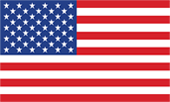Feral Hog (History)
Hogs came to Texas more than 300 years ago by way of Spanish explorers to be used as a source of lard and meat. Over the many years hogs escaped or were released and allowed to roam freely.
Feral Hog (Birth rates)
The average sow has 1.5 litters per year containing 5-6 piglets per liter.
Wild pigs travel in groups and can be categorized by the ages within the groups. A group of young pigs is a "drift", drove or litter. Groups of older pigs is a "sounder" of swine.
Feral hogs are unprotected and are considered a nuisance species in Texas. They can be taken by any legal means or methods at any time of the year. There are no seasons or bag limits. You are required to have a hunting license and/or a landowners permission will be required to hunt them.
Why Use Poison?
There is an estimated 2 to 2.6 million feral hogs in Texas . They cause $50+ million in damage annually to crops, facilities and fences. About 134 million acres, or 79 percent of the state total of 170 million acres, is feral hog habitat (Texas A&M University Institute for Renewable Natural Resources)
The Poison
The Environmental Protection Agency (EPA) approved the federal pesticide registration of Kaput® Feral Hog Bait on January 3, 2017. EPA registered the product (Registration No. 72500-26) as a "General Use" pesticide. Kaput, the brand name of pesticides produced by Colorado-based Scimetrics Ltd. Corp., is the first toxicant approved by federal authorities for use in feral-hog control.
An ingrediant found in the bait is Warfarin. It has been in use for over 60 years killing rats, mice and other rodents. Believe it or not, Warfarin has medicinal uses - it is common in some medications taken by humans as a blood-clot preventive. But to a feral hog warfarin triggers fatal internal hemorrhaging.
The poison has proven very effective at killing feral hogs, according to research conducted in Texas by Genesis Labs, a sister company of Scimetrics. The percentage of warfarin in the Kaput® Feral Hog Bait that was approved by EPA is 0.005 percent by weight - five times lower than the 0.025 percent warfarin by weight used in rats/mice baits.
How to Use Kaput® Feral Hog Bait
A special feeder is required, that hopefully will limit exposure to all non-target species that might ingest the baits. Here is the link to the manufacturers website.
Effects on Non-Target Species
Scimetrics and Texas Department of Agriculture say the effects on non-targeted species is low. There is a low level of warfarin in the Kaput baits, so in order to be toxic to a non-targeted species, that species would have to consume large amounts of the bait to kill it. As part a 2015 field test, researchers conducted 97 searches of the test area during and after a month-long trail to locate non-targeted species that consumed the baits. They reported finding no non-targeted species. "The low warfarin concentrate bait proved effective in eliminating wild hogs while posing minimal exposure to non-target wildlife."
Effects on Hunters that shoot Hogs?
Texas Department of Agriculture indicate the low levels of warfarin found in the hogs that consume the baits pose little threat to humans. The hog's liver is where most of the warfarin will be concentrated. The bait contains a blue dye that transfers that color to the fatty tissues of hogs.
Can Anyone Buy the Poison?
In order to distribute a "State-Limited-Use" pesticide, a dealer is required to hold a pesticide dealer's license, issued by the Texas Department of Agriculture. Additionally, a person may not purchase or use a "State-Limited-Use" pesticide, unless licensed as a pesticide applicator, or under the direct supervision of a licensed applicator. Licensees must meet criteria adopted in rule by the Department under the Texas Administrative Code.
For more information about the Agricultural Pesticide program, including licensing requirements, continuing education, and product registration information, click here.
NEED HELP WITH A WILDLIFE PLAN -- PLEASE FILLOUT THE FORM BELOW


